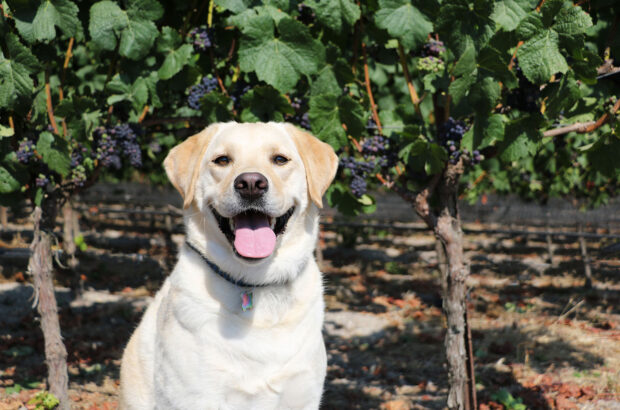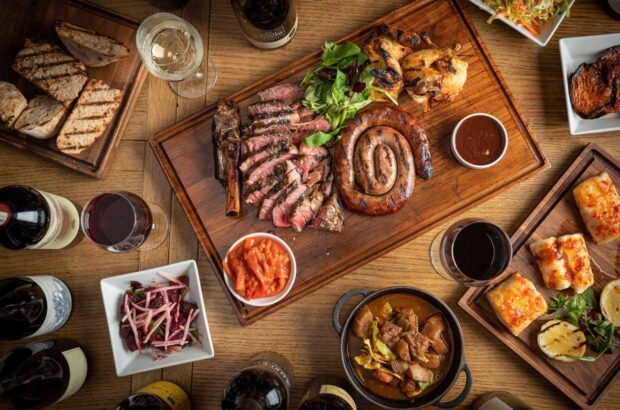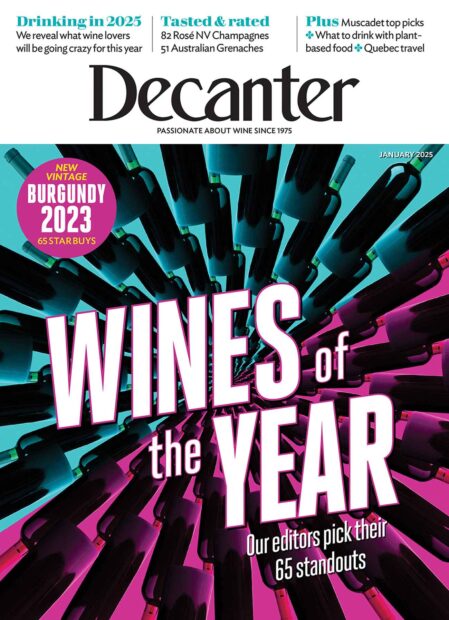Andrew Jefford investigates why there aren’t more of them.
One of the complaints intermittently levelled at wine writers is that they don’t tell enough stories. This view was articulately expressed (and memorably wrapped in a story of her own) by Felicity Carter, editor-in-chief of Wine Business International, in a speech to the Digital Wine Communications Conference in Plovdiv in 2015. Carter suggests that we live in a world of great storytelling, in many different formats, but that this richness has passed wine by — to our subject’s detriment.
She explored some of the reasons why this might be, and suggested “that the skills which make someone a great wine writer often work against great storytelling”. By this she meant that a wine writer, as “the ultimate insider”, tends to put herself or himself “front and centre” of a piece, whereas “In great storytelling, it’s the story that sits front and centre.”
Wine writers are not meant to get beyond the drink
Writing is most enjoyable when one can find a story to tell, which was why I particularly relished writing a book about the island of Islay: around half of the book was about whisky distilling, but the other half was about the island, its history, its shipwrecks, its wildlife, its weather, its landscape and its people. Getting beyond the drink to the place itself was a licence to tell stories, and to touch not just on the Hebridean feelgood of Islay but also the catastrophe and disaster which had often afflicted the island.
And there’s the rub: the stories came when I could get beyond the drink. Wine writers, though, are not meant to get beyond the drink. It’s all about the drink. That’s what readers want to hear about; that’s the message. If you drop that and go beyond, you go off-message.
A story, moreover, as we customarily understand the word from its use in fiction, history and biography, is an intricately woven narrative about a person or a sequence of events which leaves us the wiser, with rounded understanding. The full gamut of human experience is on display; events are sometimes driven by love, altruism, idealism, intelligence and occasionally genius; but no less often by greed, lust, loathing, bigotry, stupidity, incompetence and chance. (The mirroring of that complexity of lived experience makes Tolstoy’s War and Peace truly the greatest story ever told.)
This ‘full picture’ is emphatically not what those soliciting wine journalism wish to have exposed about themselves or their businesses, nor is it what the editors of wine magazines or the commissioners of wine columns would like their writers to explore. Supportive intimacy defines the relationship between specialist wine writing and the wine world, and this may well be inimical to true storytelling (a point Carter herself makes).
Why? Because the global wine trade, worth around 30 billion euros annually, funds specialist wine writing in an indirect manner – via advertising; via subscriptions; via the enabling of visits, tastings and wine fairs; via the submission of bottles for wine competitions or samples for critical scrutiny.
In the case of wine, this indirect disbursement of funds to opinion-formers and the organizations and publications which support them is money well spent, since wine is a highly fractured in production and marketing terms, as well as being a consumer comestible of unrivalled complexity. Hapless consumers look to opinion-formers for help, whether it be 25 words on a ‘wine of the week’ in a local tabloid newspaper, or the adjective-lavished notes and superlative scores for 2010 Latour from fine-wine critics.
Wine writers help sell wine; many enjoy the sales cheerleader role for the perceived power and influence it brings to their persons (these are Carter’s ‘ultimate insiders’). No corruption need be involved, since no one should be paying for favours; it’s the discussion that is most valuable, rather than the individual verdicts (at least in the post-Parker age).
The supportive intimacy which keeps the whole circus turning encourages constructive professional criticism — but not the uncompromising storytelling honesty which would reveal the full human detail behind ownership transitions following adultery and marriage breakdown, for example, or behind suicides, accidental deaths, alcoholism, poor stewardship, corruption or criminal activity, fascinating though these would certainly be to readers. Nor can you describe the full odiousness of the pompous, abrasive, arrogant or foul-mouthed individuals (few in number) in the wine world, or the stories you in turn hear about them. There are no resources for expensive investigative journalism in wine, nor any desire to find such resources.
Only once the law steps in can the hounds be unleashed and the stories start to roll (contrast the ‘before’ and ‘after’ coverage of winery investor and former Screaming Eagle owner Charles Banks, at present facing potential imprisonment in Texas for a charge of wire fraud to which he has pleaded guilty).
One way to escape the unwritten prohibitions and indulge in uncompromising storytelling is to be an independently funded outsider. There is a catch here, though, in that once you break the protocols and deliver your story, you become a pariah and your sources will dry up, so this approach is a non-starter for any career journalist.
Better to research in a pliant, quiet and obedient manner for a couple of years and then roll up all your stories into a tell-all book format — but funding of that order is hard to come by. Even then, wine’s complexities often elude the inquisitive short-stay outsider, so the details (or substance) of an exposé may be inaccurate or ring false, and you may find any profits gobbled up later in legal fees. An insider’s frank memoir at the end of a long career probably has the best story-telling potential of all, particularly if many of the villains have obligingly predeceased the author — which is why I have high hopes for Steven Spurrier’s autobiography. Come on Steven, spill the beans!
For those would-be writers with the narrative itch, though, all is not lost. The secret is to sit down with whatever data you happen to have acquired about a subject and work it up in a story-like way, even if it isn’t ‘a story’ in Emile Zola’s sense of the word. Remember that every reader has partial knowledge; take them by the hand and guide them into the subject. Mention something intriguing about your subject which you only reveal or return to at the end of a piece, as if it was a key biographical detail in a murderer’s psychological evolution. Emphasise counter-currents of opinion as if they were love rivals. Use the occasional descriptive flourish to bring life to a detail, or to lend substance to a personal description. Try to find themes or arguments to develop. Establish as personal a relationship as you can with the material, so that the reader can sense your emotional commitment to it — and don’t be afraid of humour (there’s nothing worse than being unremittingly serious about wine).
Above all, hack and slash once you’ve got to the end, so that every sentence is moving ‘the story’ along rather than treading water. This approach can even work with the construction of tasting notes, unlikely as it may sound: a great note begins when you establish some sort of engaged relationship with a wine, either of attraction and antipathy, and find words to illustrate why you feel as you do, or describe the way in which the relationship changes during the time the wine spends in your mouth at a tasting (or, much better, in your glass at table).
One advantage of specialist journalism is that the political stakes are relatively low, so it hasn’t as yet become infected with false news, nor are writers under any pressure to embrace the post-truth agenda. Politeness (tellingly phrased) and decorum (accompanied by subtle observation) may become welcome, even refreshing, in a world noisy with invective, rants and trolling.
Although it’s sometimes frustrating to have to stay on message and stick to what’s in or around the glass, wine writers are also lucky that our subject matter touches on so much else in life — from geology, plant science and organic chemistry to commercial history and aesthetics. Nor is description and narrative ruled out entirely, since the wine world is full of memorable personalities, and each new vintage brings its own rich tide of change to log. If you really want to tell stories above all else, then the best course of action is to do as Tolstoy or Zola did – and make them up.
More Andrew Jefford columns on Decanter.com:

Jefford on Monday: The alpha and omega wine
Andrew Jefford recommends wines to try...

Jefford on Monday: Valpolicella Revealed
Andrew Jefford gets to know a fractious Italian champion....

Jefford on Monday: Of schist and schists
Andrew Jefford digs into a big terroir debate...

Jefford on Monday: Picpoul on the march
Andrew Jefford on the rise of Picpoul de Pinet...







